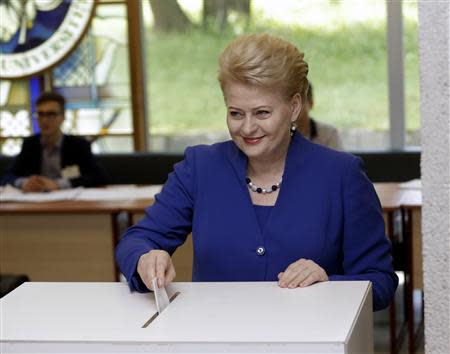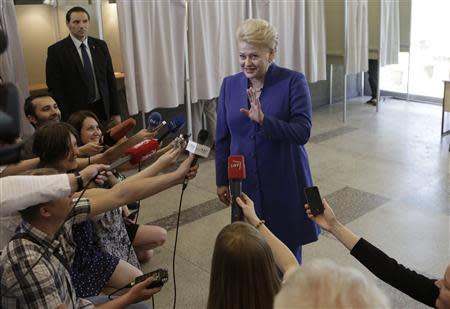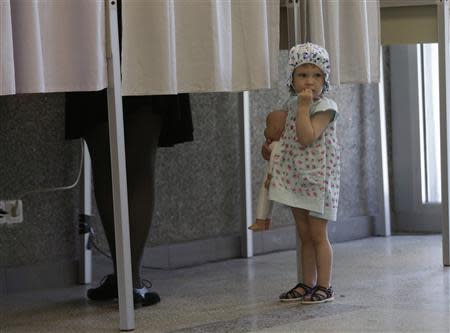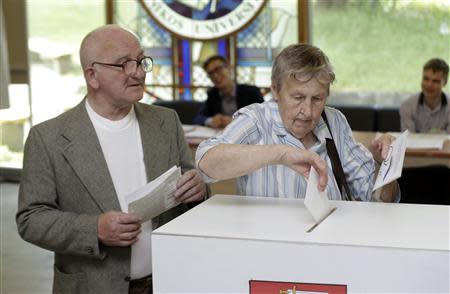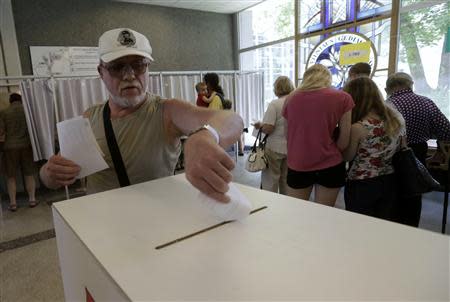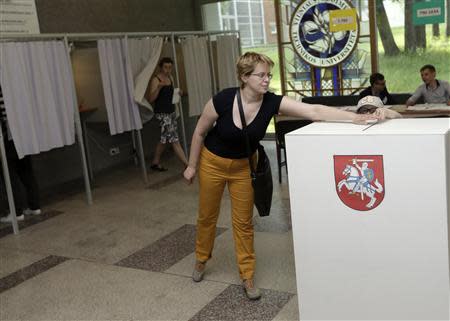Lithuania's president wins second term on anti-Russia platform
By Andrius Sytas VILNIUS (Reuters) - Lithuanian President Dalia Grybauskaite has won the first consecutive presidential term in the country's history, with her anti-Russian platform striking a chord with voters. Grybauskaite, a 58-year-old former European Budget Commissioner and former minister of finance, won 57.9 percent of the votes in the nation of 3 million on Sunday, the electoral commission said. Zigmantas Balcytis, a social democrat supported by prime minister Algirdas Butkevicius, scored 40.1 percent. Escalating tensions with Russia are likely to define Grybauskaite's second five-year term, just as financial austerity was the hallmark of her first term, which started in 2009, the year Lithuania's economy shrank by 15 percent. Fears are growing that Russia will try to destabilize the Baltic states of Lithuania, Latvia and Estonia - all members of NATO and the European Union - which have small armed forces and Russian speaking minorities. Grybauskaite wants the government to give more money to the army immediately, even if it needs to relax budget discipline and borrow more. "We are in a vortex of threats today," she said during presidential debates last week. "We are always ready to cooperate and trade, but we will never allow ourselves to be pressured, pushed or ordered what to do", she told a media conference on Monday, referring to the relationship with Russia. "We wish Russia would become more democratic and solve the upcoming economic challenges. It would be good ... if people in the country were not hungry and angry, as they usually are when the economy goes bad," she said. About 150 U.S. troops were sent to each of the Baltic states and Poland this year to reassure them that their NATO ally is taking its security commitments seriously - the first permanent deployment of foreign troops on Lithuanian soil since 1993. "Keeping Lithuanian foreign and defense policy strong and on track will be the big challenge for the president," Kestutis Girnius, associate professor at the Institute of International Relations and Political Science, said. "The fact that she won so strongly, while the social democrats appeared weak in recent European Parliament elections means that she will have an upper hand in her relationship with the government," Girnius said. The president holds considerable power in Lithuania, appointing government ministers, judges, and the central bank chief as well as Lithuania's member of the European Commission, needing approval from the prime minister or parliament for most. Grybauskaite's tough stance will be supported by the Independence liquefied natural gas (LNG) terminal starting imports next year, breaking Lithuania's total dependence on Russian gas. She has called the dependence on Russian gas an "existential threat" to the republic. Lithuania pays one of the highest prices for natural gas in the European Union, and about 20 percent more than its neighbors, which are similarly dependent on Russia. (Editing by Louise Ireland)

